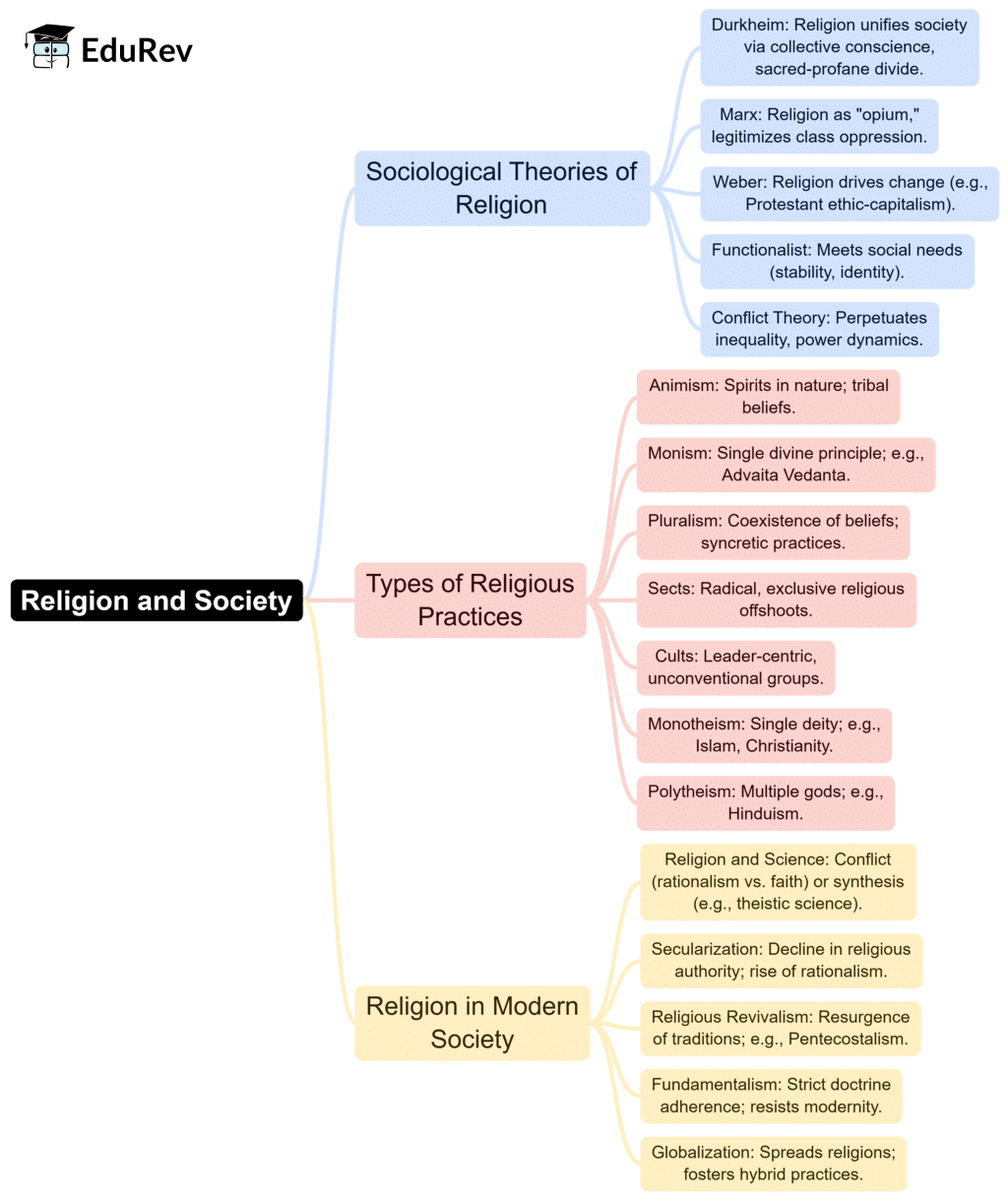UPSC Exam > UPSC Notes > Sociology Optional for UPSC (Notes) > Mind Map: Religion and Society
Mind Map: Religion and Society | Sociology Optional for UPSC (Notes) PDF Download

The document Mind Map: Religion and Society | Sociology Optional for UPSC (Notes) is a part of the UPSC Course Sociology Optional for UPSC (Notes).
All you need of UPSC at this link: UPSC
|
112 videos|389 docs
|
FAQs on Mind Map: Religion and Society - Sociology Optional for UPSC (Notes)
| 1. What is the role of religion in shaping societal values and norms? |  |
Ans. Religion plays a crucial role in shaping societal values and norms by providing a moral framework that guides behavior and decision-making. It often influences laws, cultural practices, and interpersonal relationships, fostering a sense of community and shared identity among its followers. Religious beliefs can impact various aspects of life, including family structures, gender roles, and social justice issues.
| 2. How does secularism influence the relationship between religion and society in India? |  |
Ans. Secularism in India aims to ensure that the state treats all religions equally and does not favor or discriminate against any particular faith. This has led to a complex relationship where religion can coexist with a diverse array of cultural practices. While secularism promotes religious freedom, it sometimes faces challenges from religious fundamentalism and communal tensions, impacting social cohesion.
| 3. What are some contemporary issues related to religion and society in India? |  |
Ans. Contemporary issues related to religion and society in India include communal violence, caste discrimination, and the politicization of religion. Other significant concerns are the rise of religious intolerance and the struggle for gender equality within religious contexts. These issues often lead to debates about the role of religion in public life and its implications for democracy and human rights.
| 4. How does globalization affect religious practices and beliefs in society? |  |
Ans. Globalization affects religious practices and beliefs by facilitating the exchange of ideas and values across cultures. This can lead to the spread of new religious movements and the hybridization of existing ones. Additionally, globalization can challenge traditional beliefs and practices, prompting religious groups to adapt or resist changes, which can sometimes lead to tensions within societies.
| 5. What is the significance of interfaith dialogue in promoting social harmony? |  |
Ans. Interfaith dialogue is significant in promoting social harmony as it fosters understanding and respect among different religious communities. By encouraging open communication and collaboration, interfaith initiatives can address misconceptions and reduce prejudice. This dialogue can ultimately contribute to peace-building efforts, creating a more inclusive society where diverse beliefs coexist harmoniously.
Related Searches





















